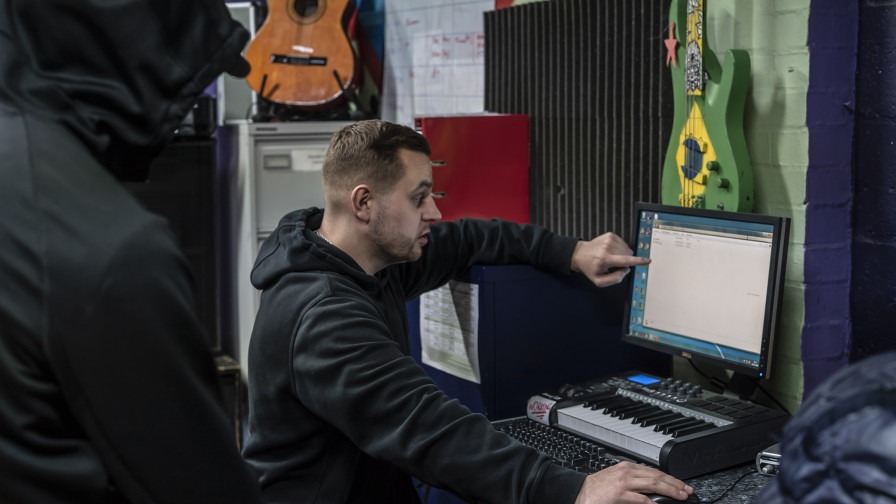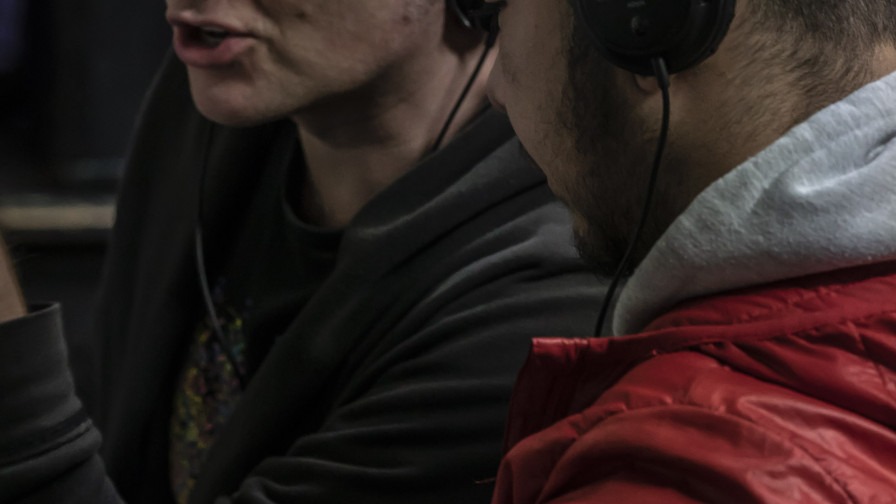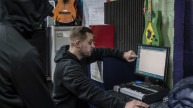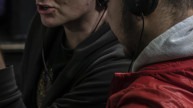What it’s like to be a SEND Project music mentor / tutor / volunteer
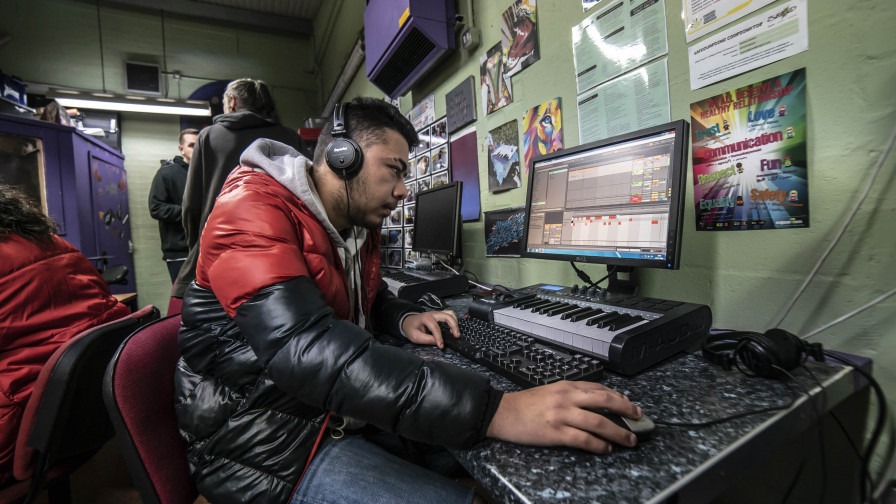
We are SEND Project – an organisation based in Nottingham that provides creative and holistic support to young people in the city who have a passion for music. In 2018, we were successful in obtaining our 4th grant from Youth Music and have been working hard since September (2018) facilitating our ‘Sound & Vision’ programme which focusses heavily on music mentoring.
For our first blog post, we thought it would be a great idea to talk about what works well, what is challenging and about strategies we have put in place to overcome challenges and barriers. We spoke to our team of music mentors, tutors and volunteers and asked them to share their opinions on the above.
What Works Well?
When discussing this with our team, a wide skill set between the staff was something that was highlighted numerous times. We are lucky enough to have a team with specialities ranging from singing and playing instruments to lyric writing, production and sound engineering. This massively benefits our participants and provides activities that may not always be accessible to them; they get to develop skills they already have as well as having the opportunity to explore, learn and share new skills amongst themselves.
Sharing Is Caring
Collaboration is what helps us grow as musicians whilst providing an opportunity to share skills. We aim to nurture collaboration in our sessions, providing an opportunity for our participants to bond and come to common ground creatively. Currently the majority of our participants are recording artists and spend lots of time in the studio, but we aim to provide fun activities where artists get to try new musical skills. For example, we encourage trying out a variety of instruments to gain experience playing the drums/guitar or to provide lyrics to accompany the backing track played by other participants – this gives instrument players new challenges in terms of working with a ‘lead vocalist’ which can enhance or alter their playing technique.
Space Is the Place
The space in which our participants practice their art form can be crucial for their development. We are fortunate to be able to provide multiple musical spaces which are dedicated to the learning of different musical areas, e.g. we have a dedicated instrument room which allows young people to learn a new instrument whilst also providing a space for performance. We also have a music studio kitted out with a vocal booth and satellite production suits for participants to try their hand at digital music production. We have found that having these dedicated work spaces provides new musical experiences whilst offering a different place to work in – independently or collaboratively.
What’s The Plan?
Planning is an integral part of what we do. It may seem like basic stuff to have a session plan but we have found that going through this plan with the whole team prior to the session brings everyone up to date and can identify areas of the activity where participants may need an extra hand. Our planning is backed up by monthly team meetings which give context to musical progression for our participants. We also run a briefing/debrief pre and post sessions. In the briefing we will typically outline the creative activity for the session; identifying how each team member (music mentors and volunteers) can support, as well as discuss mentoring needs and monitoring / evaluation requirements. In debrief sessions we reflect on what went well, areas for improvement and future planning. We also try and get feedback on the session from the young people themselves - great ideas have come from this; for example a second recording space in a side room utilising a mobile set up. It’s a great way to share good work whilst providing a platform for feedback.
What is challenging & how do we overcome?
As most, if not all of you reading this will be aware, working with young people has its challenges and finding ways of overcoming them can be a consistent challenge in itself. In asking our team members this, two key themes came up:
Confidence is Key
Confidence is something that is developed by all people young or old. At SEND Project we aim to empower our participants by celebrating success and overcoming any barriers which stops a participant from developing creatively. Our singing tutor (Steph Hargreaves) shared that one of the most challenging obstacles is building our participants confidence, enabling them to record and perform. Of course it’s not the easiest thing to stand in front of a room full of people and sing, but she has found the following have helped her mentees vastly improve their confidence:
- sharing her professional experiences when dealing with nerves or confidence - helping them to convert their anxiety in to excitement - giving them plenty of one on one performance practice time
Lights, Camera, Action - (Plan)
We find that our participants don’t always feel creative due to things happening in their personal life and some weeks may not feel like taking part in anything musical. To support with this we provide holistic mentoring to all our participants; working with them to identify barriers e.g. budgeting, reducing / stopping substance misuse or information, advice and guidance with returning to education or employment. With support, each young person then creates an individual action plan to support them in overcoming their barriers. This is then used as a weekly reflective tool and the young person is supported in making consistent progress towards each goal that has been set.
Alongside a personal development action plan, we compliment this with a creative plan. These plans are a great way of reminding a young person what their musical focus is when attending the sessions and it enables the team to ensure that creative support is tailored to their specific goals. Once the plan is in place, this helps our team to structure activities to ensure that their goals are being met.
A familiar obstacle to progress is poor attendance. We encourage young musicians to develop their efficacy by providing open communication lines to their mentors; that way we empower them to take responsibility for their own progress. If they can’t make it any given week then we ask them to let us know. It’s fair to say this level of communication is rare amongst the young people we work with and so it often forms a key element of their personal development goals.
Sharing and Continuing Our Reflective Practice
Through the course of putting together this blog our team have reflected on many elements that make this project successful. We’re really keen to continue to share and learn from other music professional so it would be great to hear from you if you have any thoughts generated from reading our blog.
What challenges do you face? How do you overcome them?


